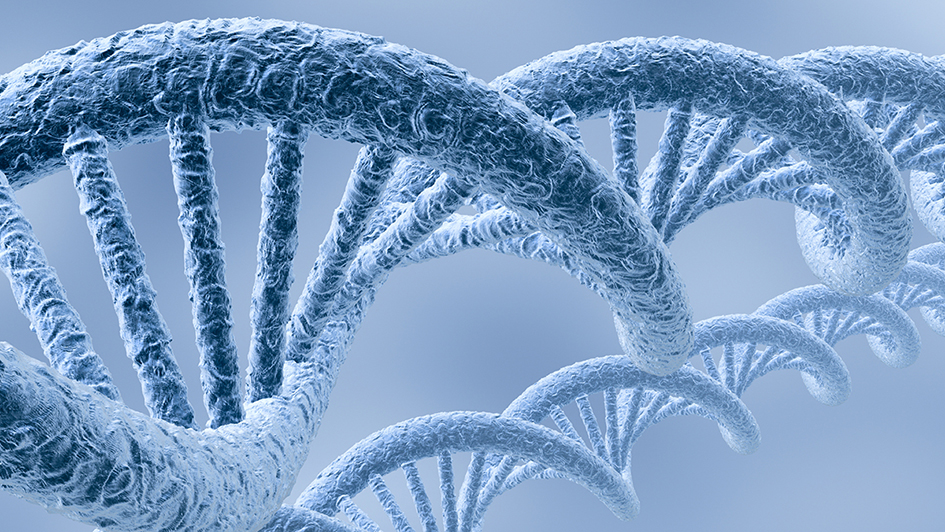
A ring of proteins that holds our chromosomes together as they replicate also plays a vital role in stopping DNA damage from leading to cancer, according to new research.
A team led by scientists from The Institute of Cancer Research, London, found that this ‘cable tie’-like ring of proteins – called cohesin – helps to stop DNA from being transcribed while it is severely damaged.
The researchers also found that when cohesin is unable to protect DNA, it repairs with more mistakes – which can lead to cancer.
The research was funded by the Medical Research Council and Cancer Research UK, and was chosen to feature on the front cover of the journal Molecular Cell.
Cancer suppressor
Cohesin is made up of a number of proteins that work together to hold strands of DNA in place, like a cable tie.
These proteins are often mutated in cancer cells –for example, around 20 per cent of bladder cancer cases carry a mutation to the cohesin protein SA2.
This has led many researchers to conclude that cohesin helps to prevent cancer by holding chromosomes together during cell division, ensuring both cells get the right number of chromosomes at the end.
However, Professor Jessica Downs’ team at the ICR reasoned that cohesin must be involved in preventing cancer in other ways, because some cancers with mutations in their cohesin proteins do not have the wrong number of chromosomes.
Research at the ICR is underpinned by generous contributions from our supporters. Find out more about how you can contribute to our mission to make the discoveries to defeat cancer.
Preventing genome instability
This new research reveals one such mechanism: stopping DNA from being copied at the site of ‘double strand’ DNA breaks, where two strands of DNA have been broken.
The research team found a mutation to the protein SA2 that led to cancer without affecting its ability to hold chromosomes together during cell division – proving SA2 must be driving cancer in another way.
They went on to show that cohesin attaches to DNA near the site of double strand breaks, preventing DNA from being transcribed into new proteins until the breaks are repaired.
The team also showed that when cohesin was unable to stop DNA from being transcribed near sites of serious damage, there were large-scale rearrangements to DNA sequences – including segments of DNA ending up in wrong parts of the chromosome.
Professor Jessica Downs, Professor of Epigenetics and Genome Stability at the ICR, led the research. She said: “Although cohesin proteins are often mutated in cancer, it isn’t always clear how they help to prevent the disease.
“Our research has uncovered a new function for cohesin, showing that its role in repressing transcription at DNA breaks helps to prevent genome instability, and furthering our understanding of this incredibly important tumour suppressor.”